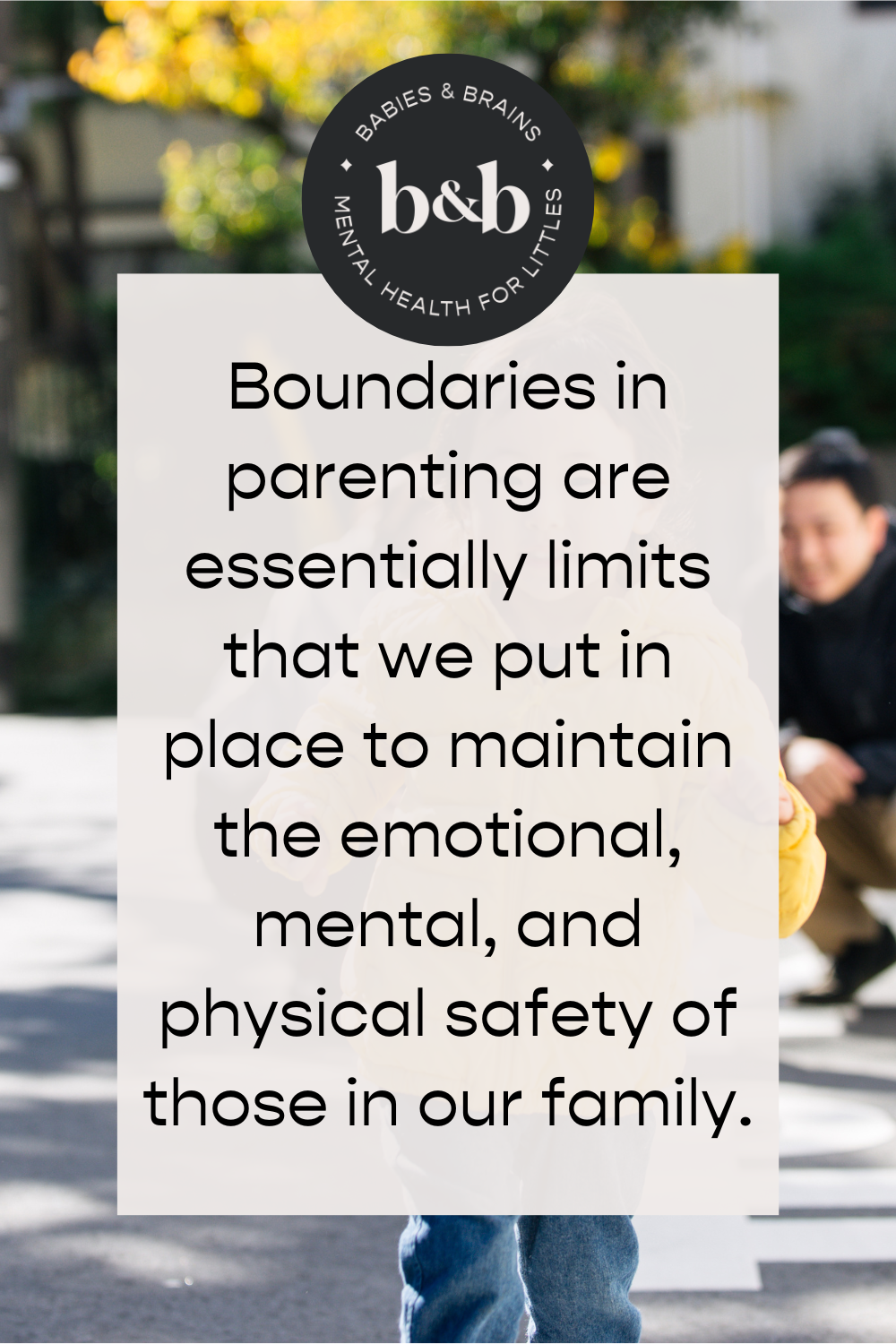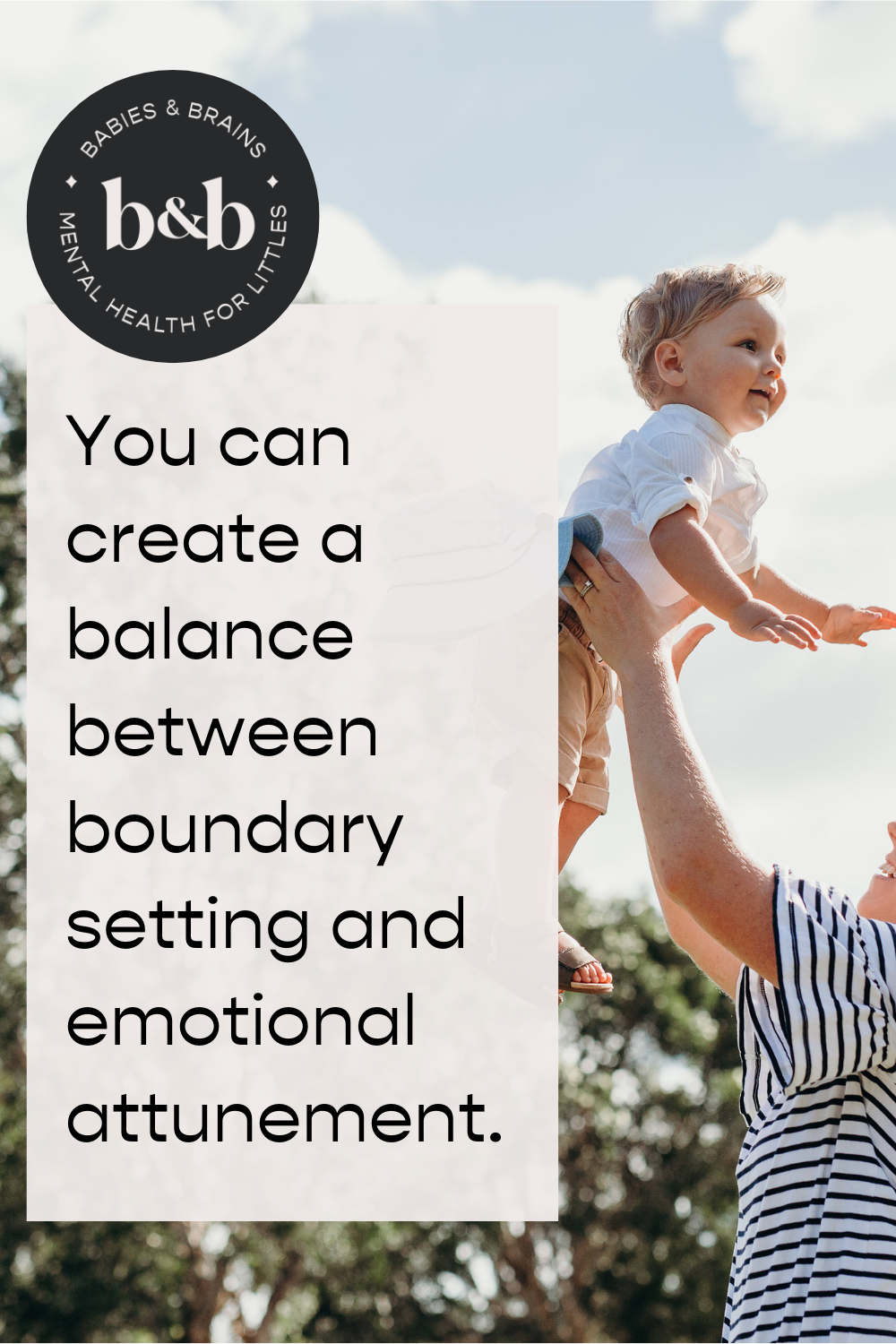Why Boundaries are Important in Attachment Relationships
When many people think about boundaries for little ones, they think they are important because, “children need to learn how the real world works.” While yes, it is important for little ones to understand limits and learn skills like impulse control, patience, problem-solving, etc, there is another reason why boundaries are really important, even at a young age.
Children learn that if their caregivers can set boundaries, their caregivers are capable of stepping up and keeping them safe.
Your child’s feelings of safety and security are a huge key factor in the formation of a secure attachment relationship.
What exactly is a boundary?
While boundaries may look different across varying circumstances, at their core, boundaries in parenting are essentially limits that we put in place to maintain the emotional, mental, and physical safety of those in our family. Many people think of boundaries when it comes to preventing physical harm, such as, “You have to walk on the side walk. We can’t walk in the road,” however, boundaries can also be put in place to protect the mental well-being of others, including ourselves as parents!
Why may a caregiver need to set boundaries, even with very young children?
Parents may need to set boundaries to:
1) Keep their children and other safe from physical harm.
2) To protect their own mental energy so that they can continue showing up for their children.
3) To make changes to things that are no longer working for the family.
What if my child is really upset by boundaries I put in place?
Here’s the thing: Even if children don’t like our boundaries, they benefit from them in the long-run. However, there is a difference between setting strict boundaries that do not take the child’s experience into account (authoritarian parenting) and setting boundaries that also recognize the child as an individual (authoritative parenting). Authoritative parenting styles that balance firm boundaries around behavior with emotional attunement and recognition of the child as an individual have better outcomes for little ones as they grow.
What might this balance sound like?
Balancing boundaries with emotional attunement may sound something like, “I can’t let you hit. You can be mad at me, but you may not hit me.”
“You’re frustrated that he knocked your tower over. You can be frustrated, but you cannot throw your blocks. Let’s go cool down for a second in the other room.”
“I can’t let you run in the street. I have to hold you to keep you safe. I know it’s hard.”
Why do some parents struggle with boundaries?
Some parents may struggle with boundaries because of their own experiences in childhood. Sometimes, these parents grew up with parents of their own who set really strict boundaries, and so they end up falling on the other end of the spectrum and end up being too lenient and un-structured. This can actually lead to children feel unsafe because they may not trust that their caregiver can step up to keep them safe when necessary. These parents may struggle with setting boundaries because setting boundaries “feels mean” to them; this may be due to their experience with parents who actually were very harsh and unkind and did not have a kind balance with emotional attunement when setting boundaries.
Other parents may struggle because they also had parents who struggled with appropriate boundaries. These parents were left without a healthy model of what it is like to set boundaries. Now as parents themselves, they may struggle to know when and how to set boundaries.
We can learn to set boundaries, even if we didn’t have a good model growing up.
If you find yourself having a hard time setting boundaries, one of the best things you can do is turn inward and reflect. Get comfortable with what is coming up for you. Consider your thoughts, beliefs, bodily sensations, feelings. Once you identify what is coming up for you, you will have an increased awareness. Awareness gives you the power to move through and past the things that control you. Even if setting boundaries feels uncomfortable at first, practicing them again and again will show you and your nervous system that they are safe; not only that, they help your child feel safe!
I cover boundaries and more on attachment in my Parenting Through Attachment Course. Make sure to get on the waitlist so that you don’t miss the next launch!
Was this helpful?
Click it and pin it so you can save it for later!




